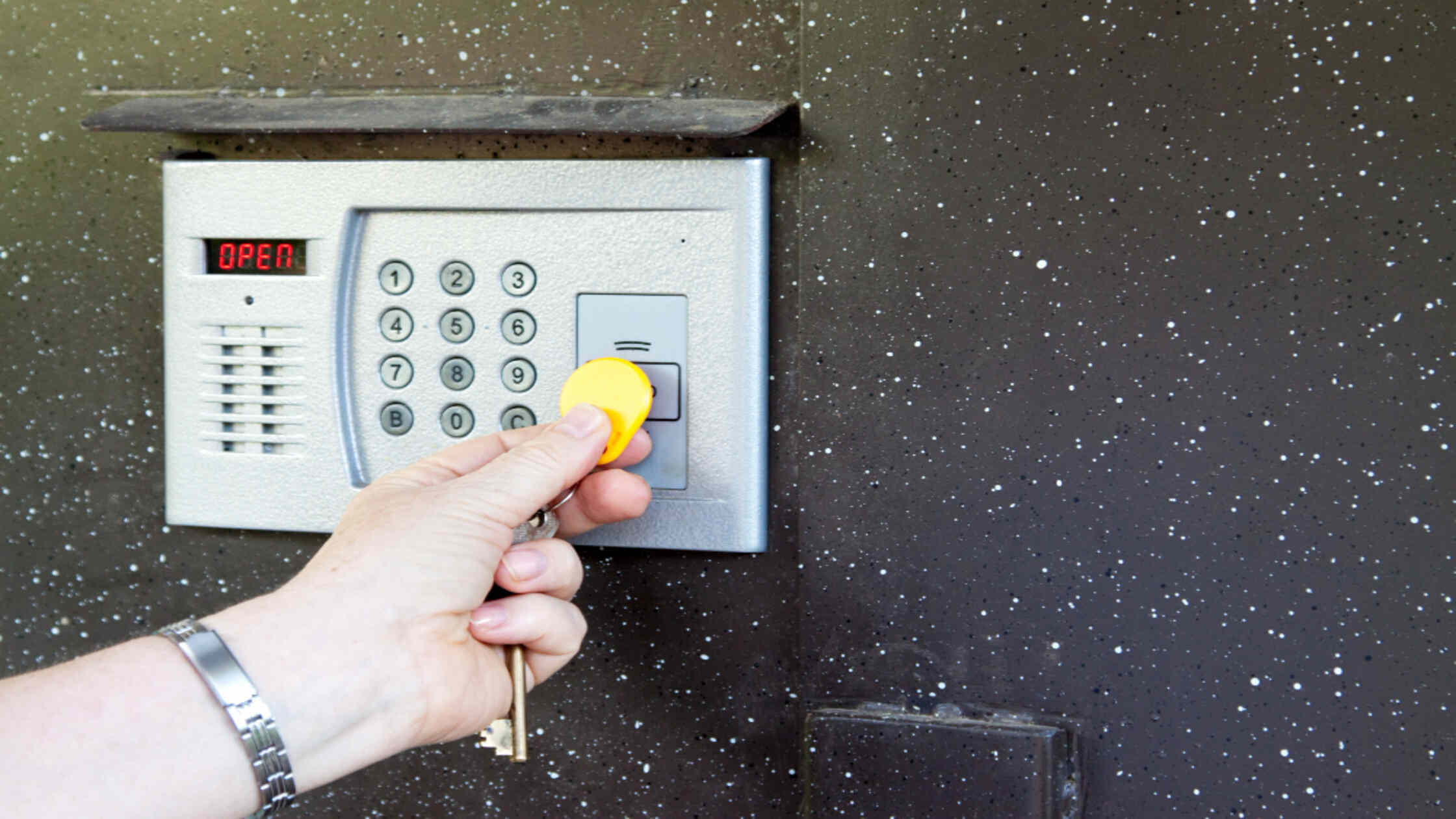Massachusetts squatter rights are often misunderstood, leaving landlords and tenants uncertain about their legal standing. In 2025, with changes in housing regulations and rising property disputes, knowing the basics is more important than ever. This article covers the key Massachusetts squatter rights, laws, and responsibilities you need to be aware of.
Massachusetts Squatter Rights: What Are They and How Do They Work?

In Massachusetts, a squatter is someone who resides on a property without a lease or permission. However, if specific conditions are met, they may be able to claim legal protections under Massachusetts squatter rights.
One common misconception is that squatting rights are acquired quickly, but this is far from the truth. In Massachusetts, squatters' rights, including the idea of acquiring squatters' rights in 30 days in Massachusetts, require more than just short-term occupancy. In reality, squatters must meet strict legal requirements, such as occupying the property openly, continuously, and without the owner's objection for an extended period—typically up to 20 years under adverse possession laws.
Landlords can further protect themselves by understanding tenant-related laws, such as those concerning the Massachusetts security deposit.
Differences Between Squatting vs. Trespassing
Squatting and trespassing are often confused, but there are key legal distinctions between the two.
- Trespassing occurs when someone unlawfully enters or occupies a property without permission, and it is considered a criminal offense. Trespassers can be removed immediately, and property owners can involve law enforcement to address the issue.
- Squatting, on the other hand, involves occupying a property for an extended period, often without the property owner's immediate knowledge or objection. While squatting initially starts as a form of trespassing, squatters may gain certain legal protections if the property owner fails to act within a specific timeframe. These protections can sometimes lead to adverse possession Massachusetts claims, where the squatter can legally claim ownership of the property under specific conditions.
Why Massachusetts Squatter Rights Matter for Property Owners in Massachusetts?
If you own property in Massachusetts, squatter rights are something you can’t afford to ignore. Ignoring a squatter can lead to serious legal consequences, like claiming ownership of your property down the road.
Massachusetts squatter rights exist to ensure fairness, but for landlords, they’re also a reminder to stay proactive. For example, if you own vacant land or an unused building, you’ll want to regularly check on it, secure it, and take action immediately if you find someone living there. The sooner you address the issue, the easier it is to avoid complications like an adverse possession claim.
Why Are Squatters Protected Under Massachusetts Law?
It’s easy to think, “Why should squatters have any legal protections at all?” But the truth is that Massachusetts law protects squatters for reasons rooted in fairness and practicality.
These laws prevent property owners from evicting people without following proper legal processes. They also encourage the productive use of neglected or abandoned properties. In case a property sits unused for years, and someone moves in, cares for it, and uses it as their home, the law sees this as a better outcome than leaving it to deteriorate.
Of course, there are strict rules for squatters to gain legal protection, and it doesn’t happen overnight. These laws are about balancing property rights while encouraging responsible property ownership.
Adverse Possession Laws in Massachusetts

In Massachusetts, this law allows someone to claim ownership of a property they’ve occupied continuously for a specific period—usually 20 years.
This doesn’t mean someone can just move into your home and call it theirs. There are strict criteria that must be met. But for property owners who neglect their land or don’t monitor it, adverse possession is a real risk. Let’s break it down further.
What Is Adverse Possession and How Does It Work?
Adverse possession is a legal process through which someone can gain ownership of a property by occupying it continuously for a set period without the permission of the original owner. In Massachusetts, this timeframe is typically 20 years.
To claim adverse possession in Massachusetts, the squatter must meet certain criteria: their occupation must be open (visible to the owner), notorious (known to others), exclusive (used only by the squatter), and continuous for the required period. Essentially, the squatter must treat the property as their own, without interruption or concealment, for two decades.
Legal Requirements for Adverse Possession in Massachusetts
To claim adverse possession in Massachusetts, the squatter must meet all of the following requirements:
- They must occupy the property without interruption for 20 years.
- Their presence must be obvious, not hidden, so the property owner could reasonably know about it.
- The squatter must be the only person using the property.
It’s essential for property owners to regularly check their land, as any action taken to assert ownership can interrupt a squatter's claim and protect their property.
How to Legally Remove a Squatter in Massachusetts?

A Step-by-Step Guide to Evicting Squatters
How do you deal with squatters in Massachusetts? Massachusetts law requires landlords to initiate a formal eviction process, which involves specific documentation, court filings, and adherence to tenant rights laws. Let’s explore how you can handle this step by step.
- Confirm the Occupation: Confirm if the individual is a squatter, not a tenant. Check for any agreements that may complicate the case. If a lease has expired and the person remains, they are a holdover tenant. The property owner must legally terminate the lease before eviction.
- Serve a Notice to Quit: Massachusetts law requires that you notify the squatter to vacate the property. This is usually a 14-day notice, but it can vary depending on the situation.
- File an Eviction Lawsuit: If the squatter refuses to leave after the notice period, you’ll need to file an eviction case (also known as a "summary process") in the local housing court.
- Attend Court Proceedings: Both you and the squatter will have a chance to present your case in court. Be prepared with all relevant documentation.
- Obtain a Court Order: If the court rules in your favor, you’ll be granted a court order to remove the squatter legally.
- Enforce the Eviction: Once you have the court order, you can work with law enforcement to remove the squatter from your property.
Documentation and Legal Requirements for Eviction
Proper documentation is key when evicting squatters. You’ll need to gather:
- Proof of ownership of the property (deeds, tax records, etc.).
- Evidence of squatting, such as photos, neighbor statements, or police reports, shows that the individual is occupying the property without permission.
- Notice to Quit records, showing that you followed the legal process of serving notice.
- Court filings and any related legal paperwork from the eviction process.
How to Prevent Squatters and Secure Property?
Preventing squatters is always easier than evicting them, and several practical measures can help safeguard your property.
Regular inspections are crucial, as vacant properties are particularly vulnerable; making frequent visits can deter squatters. Securing entry points by locking doors, windows, and gates is essential, and you might also consider adding security systems like cameras or alarms for added protection. Posting clear “No Trespassing” signs can effectively deter potential squatters and provide evidence in case of disputes.
Additionally, engaging trusted neighbors to keep an eye on your property and report any unusual activity can greatly enhance your defense against unauthorized occupants.
Why Can’t Squatters Be Removed Immediately in Massachusetts?
Can police remove squatters? It’s natural to wonder why you can’t just call the police and have squatters removed on the spot. However, Massachusetts law doesn’t allow for immediate removal because squatters are granted certain legal protections, even if they are occupying the property without permission.
The reason boils down to due process, a principle that ensures fairness in legal matters. Squatters cannot be evicted without proper notice and a court order, as the law assumes they might have some form of claim or need their side of the story heard.
Legal Protections for Squatters in Massachusetts
Squatters are protected under state laws that ensure everyone’s right to due process. For example:
- Eviction notices are mandatory: Property owners must serve an official notice before filing for eviction. This gives squatters a chance to vacate voluntarily.
- Court hearings are required: Squatters have the right to present their case in court, especially if they claim adverse possession in Massachusetts or have a valid legal reason to stay.
- No self-help evictions: Property owners cannot change locks, shut off utilities, or remove belongings to force squatters out. These actions are illegal and can result in penalties for the owner.
Balancing Property Owners’ Rights and Due Process for Squatters
Massachusetts law tries to strike a balance between protecting property owners and ensuring squatters aren’t unfairly displaced. Property owners have the right to regain control of their property, but they must follow the legal process to avoid infringing on the Massachusetts squatter rights.
On the other hand, squatters are entitled to protections that prevent hasty or unjust evictions. This balance is meant to safeguard against misuse of the law while ensuring properties are managed responsibly.
Recent Legislative Changes Affecting Massachusetts Squatter Rights
In recent years, Massachusetts has implemented legislative updates to address the growing concerns around Massachusetts squatter rights and landlords’ disputes.
A significant change involves the streamlining of eviction procedures for cases involving squatters. For example, courts are now prioritizing cases related to illegal property occupation, allowing property owners to address these issues more efficiently. This change reduces prolonged court battles.
Additionally, there have been updates to clarify the requirements for adverse possession claims. Under Massachusetts law, squatters must prove that their occupation of a property has been open, notorious, exclusive, and continuous for 20 years to claim ownership. Recent legislation has made this process more transparent by requiring detailed evidence and documentation.
Conclusion
Massachusetts squatter rights are an important topic that highlights the balance between property ownership and due process. While the legal process in Massachusetts can be lengthy, it ensures fairness for all parties involved. With the right knowledge from LeaseRunner, you can protect your property while adhering to the state's legal framework!
FAQs
Q1: How to get rid of a squatter in Massachusetts?
To remove a squatter, you must follow the legal eviction process in the Massachusetts squatter rights:
- Serve a written notice to quit.
- File an eviction lawsuit if they don’t leave voluntarily.
- Obtain a court order and work with law enforcement to enforce it. Avoid taking illegal actions like changing locks or shutting off utilities.
Q2: Why can’t squatters be removed immediately?
Squatters, like tenants, have legal Massachusetts squatter rights and cannot be forcibly removed without proper notice, court hearings, and a formal eviction order. This system prevents unlawful evictions and protects against property disputes.
Q3: What state has the shortest squatter rights?
Squatter rights vary by state, but states like Tennessee and Arkansas have shorter adverse possession timelines, ranging from 7 to 10 years. These states generally have less complex processes for property owners dealing with squatters.


